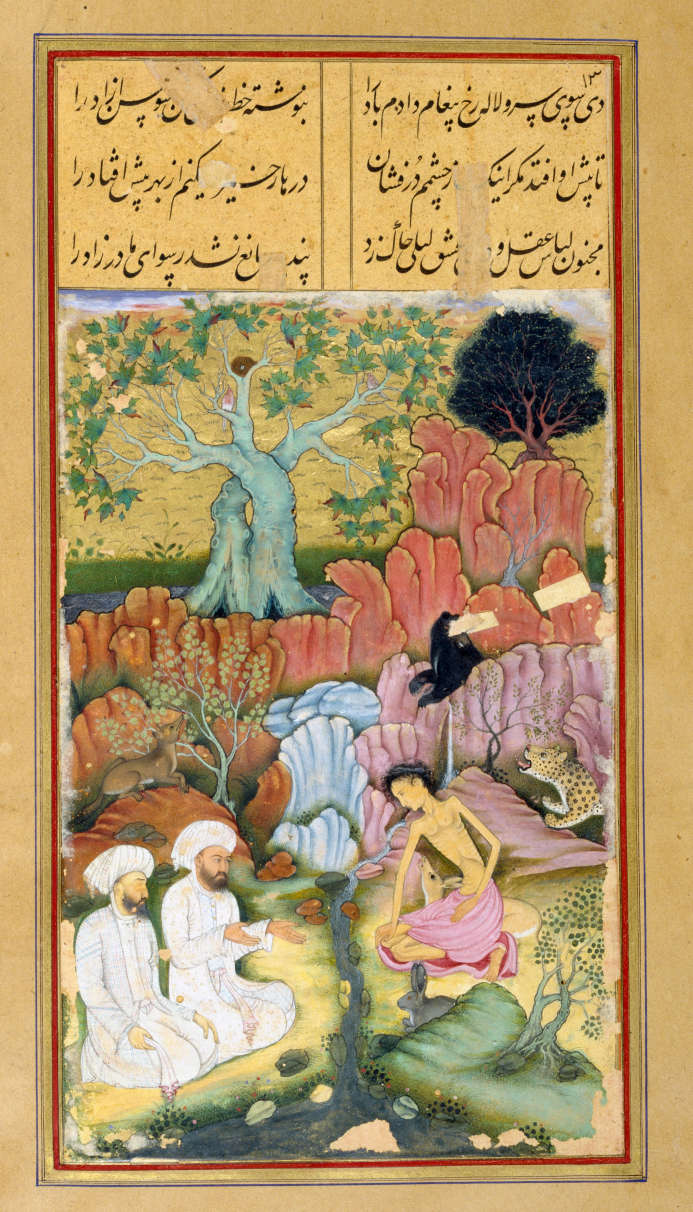FWP:
SETS == BHI
CHAK-E GAREBAN: {17,9}
CLOTHING/NAKEDNESS: {3,5}
MADNESS: {14,3}
For background see S. R. Faruqi's choices. This verse is NOT one of his choices; I thought it was interesting and have added it myself. For more on Ghalib's unpublished verses, see the discussion in {4,8x}.
The mad lover, as we know, rips open the neck of his kurta (actually a vertical slit neck, for which 'collar' is a misleading translation) as a matter of course. For a discussion of this basic ghazal theme, see {17,9}. The discussion in {17,9} also deals with the secondary sense of qismat as the cutting-out of cloth (as well as of destiny)-- and in the present verse, does it also perhaps refer to the 'cutting out' of the lover himself, as he's shaped in the workshop of madness?
Here it seems that the lover didn't even have the chance to tear open his collar, for right from the 'workshop of madness'-- and what kind of place is that?-- he emerged naked. It seems that his destiny-- or his 'cutting-out', as in fabric-- didn't include 'a collar or two'. Here are some of the possible implications of this observation:
=His destiny was so impoverished and wretched that it didn't include even a few collars for him to rip open and thus temporarily ease his madness.
=Even before he actually emerged from the workshop of madness, he had already ripped to pieces the few collars destiny would have allocated to him.
=His special, elite destiny as a mad lover was nakedness, and this destiny was clear from the moment he emerged from the workshop of madness: unlike other lovers, he didn't even have the chance or need to rip open a series of collars.
This third possibility is where the bhii comes in (contrary to Gyan Chand's claim). The speaker emerged naked not only from one more situation similar to the many ordinary situations in which he would have torn off his clothes (the 'also' case), but from, unexpectedly and remarkably, the very workshop of madness itself (the 'even' case).
Compare this verse's more fortunate cousin {6,1}, which (deservedly) made it into the published divan.

Asi:
I came vainly back from the workshop of madness, and even in that workshop no collar turned out to be in my destiny. It was necessary for there to be many collars in the workshop of madness.
== Asi, p. 54